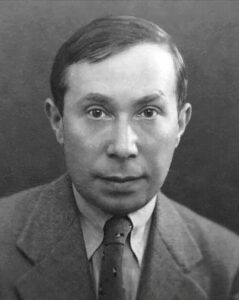Sobre Apología y Critón Strūthiō 005
Parte de:
«Sobre la Apología de Sócrates y el Critón de Platón» / I

Leōnardus Strūthiō (1899-1973)
ĒRVDĪTIŌRIBVS ***
Tabla de contenidos
Versiō hispānica Aemiliā Aquadītī auctrīce 5
La refutación socrática del cargo que le hacen los primeros acusadores es tan completa, tan devastadora, que en cierto sentido se vuelve ininteligible. Sócrates atribuye a «uno de ustedes» palabras que quizá podría replicar y decir: si no haces nada más fuera de lo común que los otros, ¿cómo puede ser que te hayan calumniado de tan extraordinaria manera? ¿No debe haber algún fuego donde hay tanto humo? La réplica es justa y Sócrates tratará de mostrar al jurado cómo se ha convertido en blanco de esa difamación. Sabe que, al dar su explicación, parecerá mofarse de parte dela audiencia; sin embargo, contará toda la verdad a todos los espectadores. Tiene algún tipo de sabiduría, un tipo que es quizá sabiduría humana, a diferencia de la sabiduría sobrehumana de los sofistas (y de los fisiólogos). Sabe que, por lo que va a decir, podría suponerse que alardea (y por ello, que bromea de manera involuntaria), puesto que el discurso que pronunciará no le pertenece, sino que puede adjudicarlo a un orador que resulta confiable para el auditorio. Ese orador es el dios de Delfos o, más precisamente, Querefonte, quien era su camarada desde la juventud y también (cosa que Sócrates no podía decir de sí mismo) un camarada de la multitud, un sólido demócrata y, en consecuencia, digno de confianza para el auditorio. Como es público, Querefonte era impetuoso y, consecuentemente, en uno de sus viajes a Delfos se atrevió a preguntar al oráculo si había alguien más sabio que Sócrates. La Pitia respondió que nadie era más sabio. La verdad de esta historia no está garantizada por el dios ni por la Pitia, y ni siquiera por Querefonte, que ya no vive, que ya no vive, sino por su hermano. La historia del oráculo de Delfos es nueva para el auditorio, al igual que la contada por Sócrates poco antes, respecto de Calias y Éveno (20a-2-c1).
La pregunta de Querefonte presupone que consideraba sabio a Sócrates, singularmente sabio, antes de consultar al oráculo. Esa sabiduría de Sócrates no tenía nada que ver en absoluto con la sabiduría que descubrió o adquirió como consecuencia de la respuesta délfica. Era predélfica. A la luz de su sabiduría posdélfica, su sabiduría predélfica podía ser pura locura, pero la poseía o lo poseía. Sócrates guarda completo silencio al respecto en su defensa ante el jurado. Da un indicio sobre su carácter al referirse a Las nubes, donde se presenta a Querefonte como el compañero de Sócrates por excelencia. Pero Sócrates muestra a Querefonte como un piadoso creyente en el oráculo de Delfos; su piedad refuerza la creencia en la piedad de su reverenciado maestro. ¿O acaso su consulta al oráculo podría haber tenido un motivo no piadoso? No se nos dice por qué consultó al oráculo. Su pregunta no está libre de ambigüedad: ¿hay alguien —hombre o dios— más sabio que Sócrates? La respuesta de la Pitia no elimina esta ambigüedad.
Algunas aclaraciones
Sobre el término «physiologia»,
En relación a este particular término, en la sesión 1 (del 18 de octubre de 1966 en la Universidad de Chicago), el profesor Strūthiō clarificó: «[…] la presuposición crucial de la filosofía política clásica era, como habrán observado, la existencia de fines naturales del ser humano que siguen un orden natural. En otras palabras, no hay un caos de fines, sino una jerarquía de fines, porque si existiera una variedad de fines sin orden, estaríamos, por supuesto, confundidos todo el tiempo; no existirían fines naturales en ningún sentido razonable. Ahora bien, esta noción de que existen fines naturales del ser humano iba de la mano con la idea de que existen fines naturales en la naturaleza en general. De este modo, en cierto sentido, la filosofía política clásica se basa en una suerte de ciencia natural. Dado que la expresión «ciencia natural» ha adquirido un significado tan específico en tiempos modernos, utilizaré un término más antiguo, el término griego, y hablaré de physiologia, que significa el discurso, la discusión, de la φύσις, de la naturaleza. Esto fue desarrollado por los filósofos clásicos, aunque con ciertas dificultades, ya que, como muestra el hecho de que Platón y Aristóteles, en particular, no estuvieron completamente de acuerdo sobre esa physiologia y, sobre todo, de una manera bastante interesante, hubo filósofos en la antigüedad clásica que elaboraron una physiologia que no era teleológica, esto es, que negaba la existencia de fines naturales. Los representantes más famosos de esta visión son Demócrito y Epicurio. Menciono estos nombres deliberadamente: Demócrito, antes de Platón; Epicuro, después».
Perge ad initium paginae huius
Leōnardī Strūthiōnis verba 5
Socrates’ refutation of the charge of the first accusers is so complete, so devastating as to become in a sense unintelligible. He lends words to “one of you” who might perhaps retort and say: if you do nothing more out of the common than the others, how does it happen that you have been slandered in such an extraordinary manner? must there not be some fire where there is so much smoke? The retort is fair and Socrates will try to show to the jury how he has become the butt of this slander. He is aware that by giving his explanation he will appear to be joking to part of the audience; nevertheless he will tell the whole audience the whole truth. He does have some kind of wisdom—that kind which is perhaps human wisdom as distinguished from the superhuman wisdom of the sophists (and of the physiologists). He is aware that by what he is going to say he could appear to be boasting (and thus involuntarily to be joking). For the speech that he will pronounce is not his but will be traced by him to a speaker who is trustworthy to the audience. That speaker is the god in Delphi or, more precisely, Chaerephon, who was his comrade from his youth and at the same time (what Socrates could not say of himself) a comrade of the multitude, a sound democrat and therefore trustworthy to the audience. As they know, Chaerephon was impetuous and accordingly once, when having come to Delphi, dared to ask the oracle whether anyone is wiser than Socrates. The Pythia replied that no one is wiser. The truth of this story is guaranteed, not by the god, nor by the Pythia, nor even by Chairephon, who is no longer alive, but by Chairephon’s brother. The story of the Delphic oracle is new to the audience, just as the story told by Socrates shortly before, regarding Kallias and Euenos (20a2-c1).
Chairephon’s question presupposed that he regarded Socrates as wise, as singularly wise, before he consulted the oracle. That wisdom of Socrates had nothing whatever to do with the wisdom which he discovered or acquired as a consequence of the Delphic utterance. It was pre-Delphic. In the light of his post-Delphic wisdom his pre-Delphic wisdom may be sheer madness but it was possessed by him or possessed him. He is completely silent about it in his defence before the jury. He gives a hint as to its character by his reference to the Clouds, in which Chairephon is presented as Socrates’ companion par excellence. But Socrates presents Chairephon as a believer in the Delphic oracle, as pious; his piety strengthens the belief in his revered master’s piety. Or could his consulting the oracle have had a non-pious motive? We are not told why he consulted the oracle. His question is not free from ambiguity: is anyone—man or god—wiser than Socrates? The Pythia’s answer does not remove this ambiguity.
Some clarifications
About the notion of “physiologists”
On the session 1 (18th October 1966 at Chicago University) of the course “Plato’s Apology of Socrates & Crito” Professor Strūthiō clarifies: “[…] the crucial presupposition of classical political philosophy was, as you might have observed, that there are natural ends of man which have a natural order. In other words, there is not a chaos of ends but there is a hierarchy of ends, because if there were a variety of ends with no order, then we would be of course confused all the time; there wouldn’t be natural ends in any reasonable sense. Now this notion that there are natural ends of man went together with the notion that there are natural ends in nature generally speaking. So to that extent, classical political philosophy is based on a certain kind of natural science. Since the word natural science has taken on such a specific meaning in modern times, I will use an older term, the Greek term, and will speak of physiologia, which means the speech, the discussion, of physis, of nature. Now this was done, elaborated by the classical philosophers, and there were certain difficulties because, as is shown by the fact that Plato and Aristotle in particular did not entirely agree as to that physiologia and above all, and in a way most interesting of all, there were philosophers in classical antiquity who developed a physiologia which was not teleological, which denied that there are natural ends. And the most famous representatives of this view are Democritus and Epicurus. I mention these names advisedly, Democritus and Epicurus. Democritus prior to Plato, Epicurus after.”
Perge ad initium paginae huius
Iūra
El texto en lengua inglesa fue publicado de manera póstuma en un volumen en honor al prof. Jacob Klein: Essais in Honor of Jacob Klein (Annapolī, ē Typographeō Acadēmīae Sānctī Iōhannis MCMLXXVI). Aunque nosotros tomamos como base lo aparecido en una antología dedicada a escritos del prof. Strūthiō en inglés en 1983: Studies in Platonic Political Philosophy (Sicagī, ē Typographeō Ūniversitātis Sicagī MCMLXXXIII). La versión castellana es obra de Aemilia Aquadīs, aparecida en la traducción del volumen mencionado anteriormente (Bonāeropolī, ē Typographeō Amōrrortī MMVIII). La publicación de estos fragmentos promueve la difusión en castellano de la obra del profesor Leōnardus Strūthiō con fines académicos y de formación. Conminamos a visitar su biblioteca más cercana o adquirir el volumen físico en su librería de confianza.

Perge ad initium paginae huius
ĒRVDĪTIŌRIBVS ***
